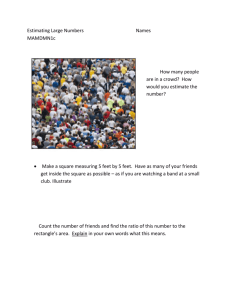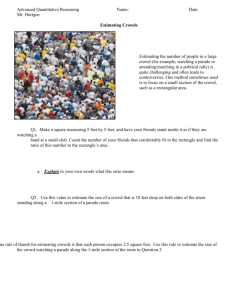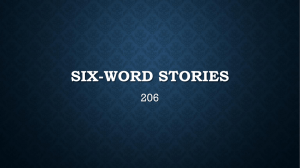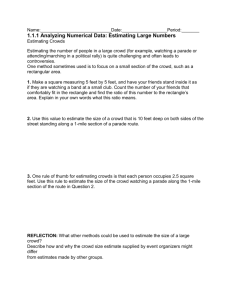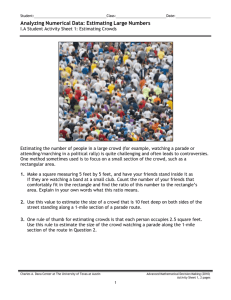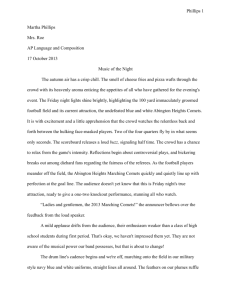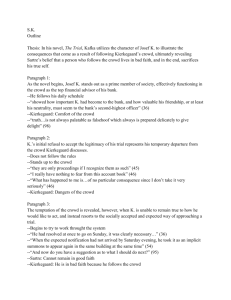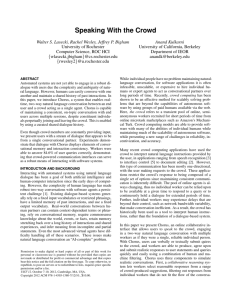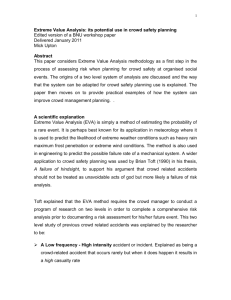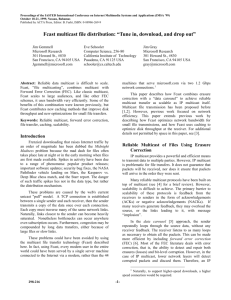Writing Exemplification
advertisement
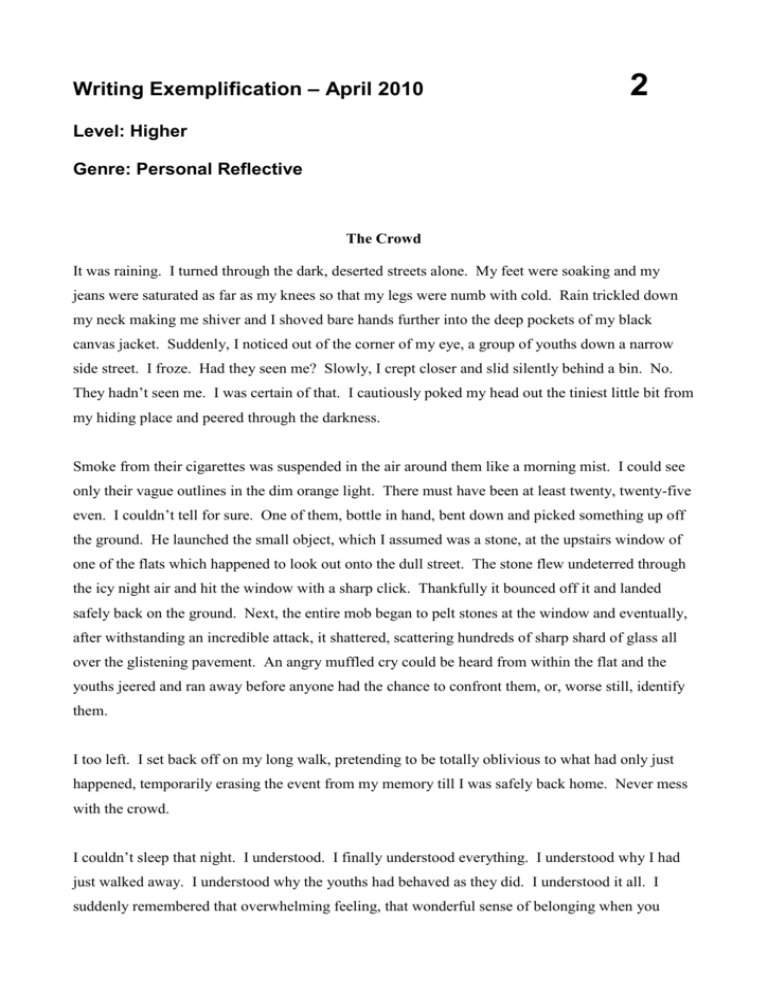
Writing Exemplification – April 2010 2 Level: Higher Genre: Personal Reflective The Crowd It was raining. I turned through the dark, deserted streets alone. My feet were soaking and my jeans were saturated as far as my knees so that my legs were numb with cold. Rain trickled down my neck making me shiver and I shoved bare hands further into the deep pockets of my black canvas jacket. Suddenly, I noticed out of the corner of my eye, a group of youths down a narrow side street. I froze. Had they seen me? Slowly, I crept closer and slid silently behind a bin. No. They hadn’t seen me. I was certain of that. I cautiously poked my head out the tiniest little bit from my hiding place and peered through the darkness. Smoke from their cigarettes was suspended in the air around them like a morning mist. I could see only their vague outlines in the dim orange light. There must have been at least twenty, twenty-five even. I couldn’t tell for sure. One of them, bottle in hand, bent down and picked something up off the ground. He launched the small object, which I assumed was a stone, at the upstairs window of one of the flats which happened to look out onto the dull street. The stone flew undeterred through the icy night air and hit the window with a sharp click. Thankfully it bounced off it and landed safely back on the ground. Next, the entire mob began to pelt stones at the window and eventually, after withstanding an incredible attack, it shattered, scattering hundreds of sharp shard of glass all over the glistening pavement. An angry muffled cry could be heard from within the flat and the youths jeered and ran away before anyone had the chance to confront them, or, worse still, identify them. I too left. I set back off on my long walk, pretending to be totally oblivious to what had only just happened, temporarily erasing the event from my memory till I was safely back home. Never mess with the crowd. I couldn’t sleep that night. I understood. I finally understood everything. I understood why I had just walked away. I understood why the youths had behaved as they did. I understood it all. I suddenly remembered that overwhelming feeling, that wonderful sense of belonging when you discover you are no longer an individual but just one miniscule part of what makes up that intricate, complex, powerful body – the crowd. All your principles and convictions suddenly shrink to insignificance and you lose a sense of who you are. Your whole personality evaporates into nothing. That is how I felt that day at Dungavel Detention Centre. The protest against the imprisonment of Asylum Seekers at Dungavel had not even begun and already I had an immense feeling of elation. The atmosphere was tense, almost electric. The sound of the dry drums resounded throughout the barren valley. Everyone was screaming and all over the barbed-wire-topped ex-prison fence were pinned thousands of banners and leaflets creating a beautiful, colourful collage around the Centre. I gripped my mum’s hand as tightly as I could. We all gathered round a platform on which the orators made their speeches and the crowd chanted and cheered and clapped and I felt so united with everyone else that I began to cry. Tears streamed down my face – I had never experienced such a powerful sense of belonging in my entire life and at that moment I was ready to do anything. The crowd controlled me and I know, without any doubt, that I would have followed it whatever it chose to do, whenever it chose to go. I chanted when the crowd chanted; I cheered when the crowd cheered; I clapped when the crowd clapped. I understood then why a crowd sometimes behaves in a way in which anyone who is not part of it is unable to understand. Crowds are dangerous. They change people. They consume unique individuals and subtly control them. They process the individuals into a homogeneous mass. Although I knew that the youths’ behaviour was not justified just because they were part of a crowd, I understood that they had been unable to escape the clutches of the power of the crowd. I understood why I had been such a coward, why I had chosen to deny what I’d seen and run away. I had been scared because, next to the crowd, I was nothing. To challenge the crowd is potentially lethal. We often see crowds behaving badly in protests, at football matches, even in our everyday lives on the streets and we reassure ourselves that, no matter what, we will never behave as badly as the crowd. We will never become so involved that we will lose complete control over own selves. Can we really be so sure? [801 words]
